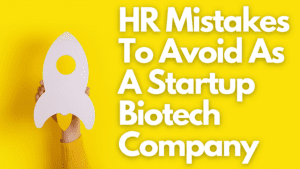
Virtual Recruiting and Hiring Trends and Tips For Life Science Companies
The pandemic turned the talent acquisition world on its head, forcing life science companies to adjust on the fly and move to a 100% virtual recruiting environment nearly overnight. While many industries saw layoffs, the life science industry saw a surge in hiring which made it even more important to get this new virtual shift right.
The transition, while a major challenge for HR and talent departments across the industry, has led to new innovation and creativity that is actively reshaping the way talent acquisition is done for the foreseeable future.
Chris Frew, the CEO of WorkForce Genetics, sat down with Tony Restell of Social-Hire.com for an interview about talent acquisition and recruiting trends that Frew and his team have seen over the last seven or eight months.
“Pre pandemic the life science market was experiencing record low unemployment and it was a really competitive job market. Post pandemic the talent market is even more amplified. We’re seeing a dramatic increase in hiring from growth stage companies all the way up to the vaccine companies working hard to get us out of our houses,” stated Frew.
“It’s been the Wild West for the past 9 months for a lot of companies. For life science companies going virtual was a big challenge, even bigger than for tech. Life science people are in the facility, at the lab bench, producing things. It was a bigger lift around how they started to do this and understanding that they can do this,” he added.
Creativity Born of Disruption
The pandemic propelled HR and talent recruiting teams to get creative fast. Transitioning to a virtual talent strategy was imperative, and though there were some bumps in the road, hiring managers and recruiters quickly pivoted to new modes and methods that are transforming the way hiring, and even onboarding, is done.
“Once people got over some things we started seeing this energy. Talent acquisition and HR were getting very creative. There is a fusion of creativity into their strategy that might not have been as dynamic in the past. They are rethinking their hiring processes and what they need to infuse into it. The creativity is exciting and has been the biggest impact of the pandemic,” said Frew.
“We’re also seeing a lot of virtual recruiting events. We can marry the large audience we generate through BioBuzz to attract candidates into the virtual recruiting event. And then our team helps with execution, screening, and follow-up. It’s something we’ve never offered before and many of our clients weren’t even looking at,” he added.
Frew shared, “Companies are streamlining their processes, too. Candidates need to be aware of this. And companies can’t shorten interviews, or not have candidates come in for interviews and expect their offer acceptance rate to be the same. You have to do things a bit differently, provide more information up front for candidates, and give them other experiences.”
Employer Branding Takes on Increased Importance
At the root of a strong employer brand is a great workplace culture that reflects a company’s mission, values and spirit. A powerful and magnetic employer brand starts with leadership and early hires forming a unified culture and core belief system that is inculcated into new hires and is maintained even as the company expands.
“Employer branding has been a buzz word for a while and the industry was lagging a bit in adoption but we are getting calls all the time now saying, ‘Hey, you were talking to us about employer branding last year…let’s talk again.’ So, I think they are realizing the importance of the employee value proposition and employer brand in the hiring process,” stated Frew.
Vibrant cultures, clear missions and a passionate staff exist at many companies across the BHCR. However, just because a strong employer brand exists internally, does not mean that a company is doing an effective job promoting it to hiring candidates and job seekers as a whole. Before the pandemic, life science companies were starting to recognize the value of investing in employer branding and marketing; competition for talent was fierce and telling an impactful and persuasive company brand story to candidates could mean the difference between securing a hire or not.
Now, in the midst of a pandemic where everything has gone virtual, intentional, and strategic employer branding and the marketing of that brand via social media, virtual recruiting events, and other digital platforms, has essentially melded with talent acquisition and hiring best practices. Whereas pre-pandemic HR and talent teams saw employer branding as a nice to have, it has become a must-have as the talent acquisition process has gone 100% digital.
Collaboration Between HR and Marketing and Communications Has Big Value
Hiring teams need to evolve and adopt increased purposefulness and investment in employer branding to compete for talent in the pandemic new normal. To do this, collaborating with marketing and communications colleagues is essential. Enhanced alignment among HR, marketing, and communications functions can provide a huge boost to hiring efficiency and effectiveness in the COVID-19 age.
“We’re encouraging talent acquisition to invite marketing and communications to a meeting to talk about their processes. I think there are a lot of elements of marketing like social media, branding., targeting, data analytics that companies have not adopted in the talent acquisition space. Have a lunch meeting with your marketing team to pick their brain. That’s a really easy, simple win,” stated Frew.
Talent acquisition, hiring, onboarding and talent retention is now about creating and maintaining a great experience across all of these phases of the HR management cycle. WorkForce Genetics has pivoted its business model to reflect this sea change in talent acquisition strategy.
“I tell my team that we are not a recruiting company, we are an experience company that generates a hire. We encourage our clients to think this way as well and to sit down and think about what kind of experience you’re creating because a lot of candidates are going through a challenging time these days. If you can build trust virtually, they’re more likely to accept an offer virtually and engage your virtually,” stated Frew.
COVID-19 has been and continues to be the ultimate disruptive force to so many aspects of daily life and work, yet out of this initial chaos has come new ways of thinking and groundbreaking innovation that could actually make a better, more efficient and productive future.
Like many other industries, the talent acquisition field is evolving to adjust to the new normal and will be stronger for it once the pandemic recedes and everyday life returns to some sense of normalcy.
- About the Author
- Latest Posts
Over the past 11 years, Chris has grown BioBuzz into a respected brand that is recognized for its community building, networking events and news stories about the local biotech industry. In addition, he runs a Recruiting and Marketing Agency that helps companies attract top talent through a blended model that combines employer branding and marketing services together with a high powered recruiting solution.




